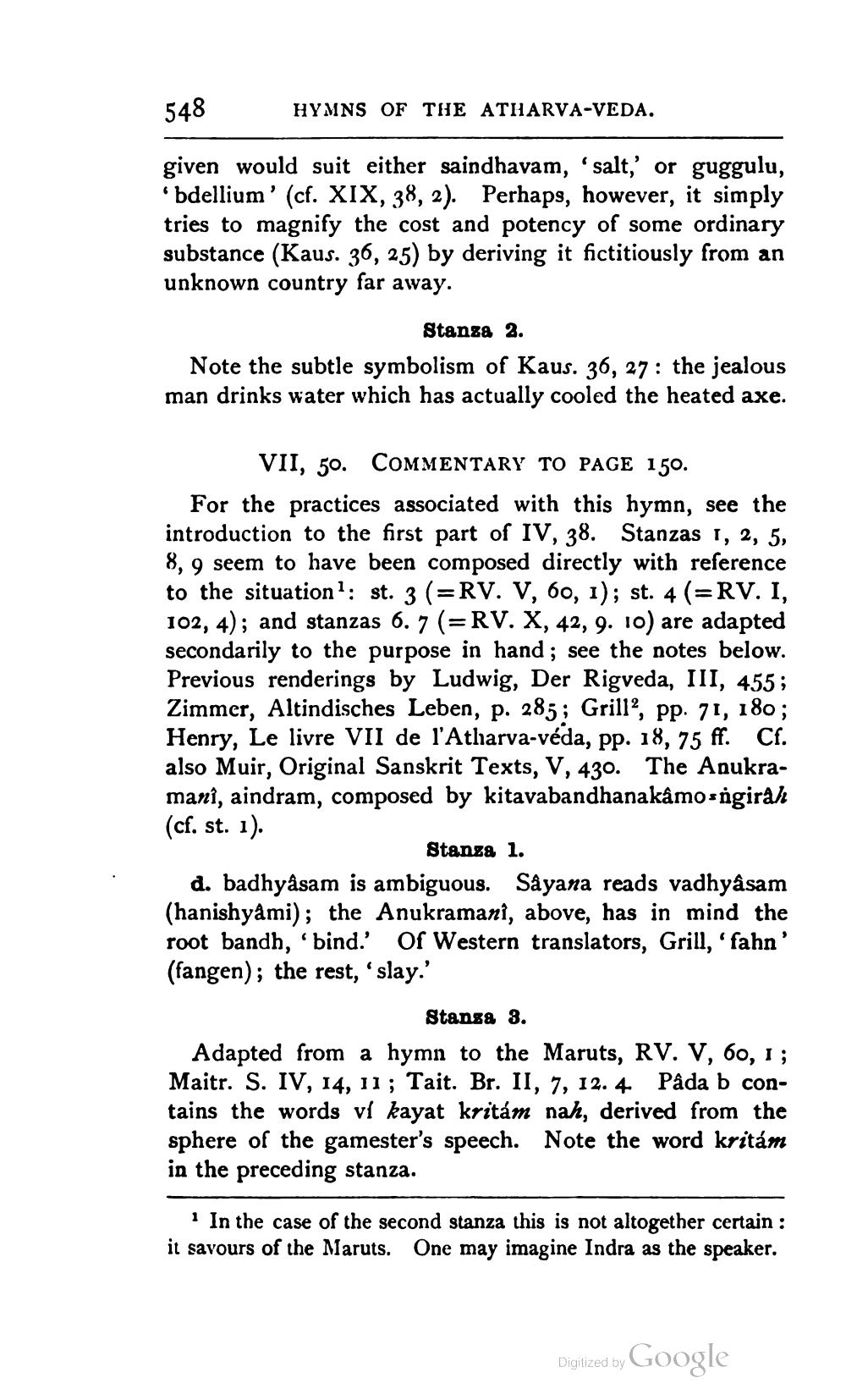________________
548
HYMNS OF THE ATHARVA-VEDA.
given would suit either saindhavam, 'salt,' or guggulu, • bdellium' (cf. XIX, 38, 2). Perhaps, however, it simply tries to magnify the cost and potency of some ordinary substance (Kaus. 36, 25) by deriving it fictitiously from an unknown country far away.
Stanga 2. Note the subtle symbolism of Kaus. 36, 27: the jealous man drinks water which has actually cooled the heated axe.
VII, 50. COMMENTARY TO PAGE 150. For the practices associated with this hymn, see the introduction to the first part of IV, 38. Stanzas 1, 2, 5, 8, 9 seem to have been composed directly with reference to the situation?: st. 3 (=RV. V, 60, 1); st. 4 (=RV. I, 102, 4); and stanzas 6.7 (=RV. X, 42, 9. 10) are adapted secondarily to the purpose in hand; see the notes below. Previous renderings by Ludwig, Der Rigveda, III, 455; Zimmer, Altindisches Leben, p. 285; Grill?, pp. 71, 180; Henry, Le livre VII de l'Atharva-véda, pp. 18, 75 ff. Cf. also Muir, Original Sanskrit Texts, V, 430. The Anukramani, aindram, composed by kitavabandhanakâmosngirah (cf. st. 1).
Stanza 1. d. badhyåsam is ambiguous. Sảyana reads vadhyâsam (hanishyami); the Anukramani, above, has in mind the root bandh, 'bind.' Of Western translators, Grill, fahn' (fangen); the rest, slay.'
Stansa 3. Adapted from a hymn to the Maruts, RV. V, 60, 1; Maitr. S. IV, 14, 11; Tait. Br. II, 7, 12.4 Pâda b contains the words vi kayat kritám nah, derived from the sphere of the gamester's speech. Note the word kritám in the preceding stanza.
1 In the case of the second stanza this is not altogether certain : it savours of the Maruts. One may imagine Indra as the speaker.
Digitized by Google




